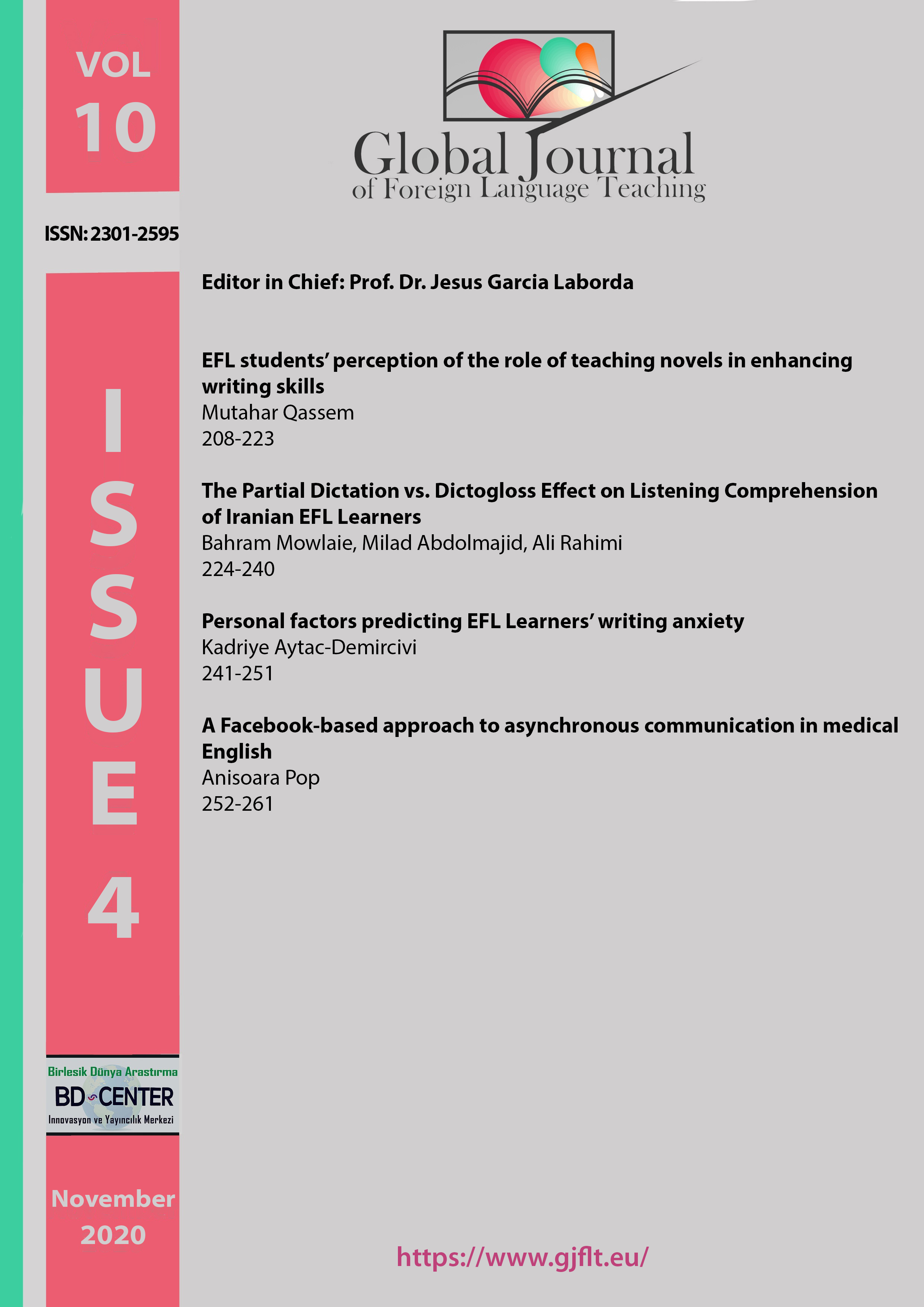Personal factors predicting EFL Learners’ writing anxiety
Main Article Content
Abstract
The present study investigated the relationshipbetween writing anxiety with gender, writing self-efficacy and writing achievement, since this issue is quite common in foreign language classrooms and usually has a negative effect on students’ writing performance.The participants were 21 intermediate level students at a state university in Turkey. An independent samples t-test found no significant differencebetween the writing anxiety levels of males and females. A statistically significant negative correlation between writing anxiety and writing self-efficacy levels of the students was found in the correlation analysis. One-way analysis of variance (ANOVA) found a significant difference among three achievement groups regarding their writing anxiety levels. Lastly, the results of the two-way ANOVA indicated a main effect of writing anxiety on students’ actual written competence/skills but there was no main effect of gender. Moreover, the interactional effect of gender and writing anxiety was not statistically significant. These results indicate that although there is no relationship between students' gender and their writing anxiety level, students' writing achievement and writing self-efficacy have an effect on their writing anxiety level. This study also calls for more student-centred and process-oriented approaches in language classrooms.
Keywords: Writing anxiety; gender; writing self-efficacy; writing achievement
Downloads
Article Details

This work is licensed under a Creative Commons Attribution 4.0 International License.
Authors who publish with this journal agree to the following terms:- Authors retain copyright and grant the journal right of first publication with the work simultaneously licensed under a Creative Commons Attribution License that allows others to share the work with an acknowledgement of the work's authorship and initial publication in this journal.
- Authors are able to enter into separate, additional contractual arrangements for the non-exclusive distribution of the journal's published version of the work (e.g., post it to an institutional repository or publish it in a book), with an acknowledgement of its initial publication in this journal.
- Authors are permitted and encouraged to post their work online (e.g., in institutional repositories or on their website) prior to and during the submission process, as it can lead to productive exchanges, as well as earlier and greater citation of published work (SeeThe Effect of Open Access).
